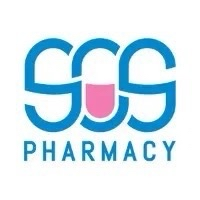Search
1/4
RM2.90
Love Earth Himalaya Mineral Coarse Rock Salt (400g) Cooking Food
Sold by SOS PHARMACY OS
5(1)
23 sold
Select options
Select
Shipping
From RM4.90
Est. delivery by Apr 17 - Apr 20
Specifications
Customer reviews (1)

C**_
Item: Default
Ok
October 20, 2024

SOS PHARMACY OS
342 items
Shop performance
Better than 78% of other shops
Ships within 2 days
78%
About this product
- Jenis Storan:Almari
- Jenis Pembungkusan:kantung Isian Semula
- Organik:Ya
- Berat bersih:400g
- Rantau Asal:himalaya
Product description

•Natural (No Chemicals & Preservative)
•Naturally harvested from Khewra Salt mine in Pakistan
•84 minerals and trace elements present
•Regulate fluid balance, blood pressure, and improves digestive system
•Can be used as an exfoliator and for salt baths
•KKM MESTI Certified
Description
Extracted from Khewra Salt mine near the Himalayan Mountains in Pakistan, which is one of the oldest and largest salt mines in the world. It goes through natural harvesting which allows the salt to retain its minerals. It has an earthy flavour and is pink in colour due to the high amount of minerals present.
Ingredients
Himalayan Mineral Coarse Rock Salt
Benefits
•Unprocessed which retains its mineral content
•It is estimated to have an average of 84 different minerals and trace elements such as potassium, magnesium, iron, and calcium
•Contains sodium chloride which maintains fluid balance and blood pressure
•Sodium chloride can also promote a healthy digestive system as it aids the nutrients that have been broken down in the body to be absorbed and transported during digestion
•Can be used as a salt bath where it can decrease dryness and soothe sore muscles
•Works well as an exfoliator on the skin by replenishing dead cells
Country of Origin
Pakistan
Certs / Awards
Jakim HALAL Certified
KKM MESTI Certified
Recommended Daily Serving Size
¼ teaspoon (1.5g) per serving
1 teaspoon (less than 5g) per day
What our nutritionist says
It is true that Himalayan salt has a higher mineral composition than regular table salt. However, its chemical composition is similar to table salt. Excessive consumption of sodium can lead to high blood pressure and an increase in the risk of heart problems. Therefore, for adults, the recommendation was that individuals should not eat more than 5 g of salt per day (2,300 mg sodium).
FAQ
1. How is this different from regular table salt?
The main difference is that the Himalayan salt is unprocessed, which means that its minerals are retained. While regular table salt is heavily processed, thus, most of its nutrients are removed.
2. Are all your salts iodized?
Yes, all our salt products are iodized.
•Mommy’s Corner
•0 - 6 months old: giving your baby salt should be avoided at this age. Babies can already get the sodium needed from breast or formula milk
•6 - 12 months old: The maximum amount that can be given is 1g per day. It is not recommended to give more than this as their kidneys cannot cope with it. However, we recommend using mild spices instead of salt if your baby’s food tastes bland.
•Above 12 months old: The maximum that can be given is 2g per day.
•For pregnant women, the recommended salt intake is the same as everyone else. A daily maximum of 5g per day or 1 teaspoon of salt.
Suggested ways to serve
•Suitable to be used in cooking and as finishing salt to flavour or garnishing.
•For salt baths: add 1 cup of sea salt to a warm bath.
Explore more from SOS PHARMACY OS



![[FRANCE] 200G CELTIC SEA SALT | GARAM CELTIC](https://p16-oec-sg.ibyteimg.com/tos-alisg-i-aphluv4xwc-sg/57403a55f9ae40c489b53598b7c8e7f7~tplv-aphluv4xwc-crop-webp:960:960.webp?dr=15592&from=2378011839&idc=my&ps=933b5bde&shcp=e1be8f53&shp=8dbd94bf&t=555f072d)



4.9
5918sold
RM29.90
RM39.90











No more products
Open TikTok















![GHLL French Celtic Sea Salt / Garam Laut Celtic Perancis 200g [SHAN YUAN ORGANIC]](https://p16-oec-sg.ibyteimg.com/tos-alisg-i-aphluv4xwc-sg/f176c345b0b14b7a8172b8279275d8a9~tplv-aphluv4xwc-crop-webp:1024:1024.webp?dr=15592&from=2378011839&idc=my&ps=933b5bde&shcp=e1be8f53&shp=8dbd94bf&t=555f072d)


![Health Paradise French Celtic Sea Salt [for Cooking Food] (Exp: Nov/2028) garam](https://p16-oec-sg.ibyteimg.com/tos-alisg-i-aphluv4xwc-sg/d2d5bf0b92b545b8a3be3100561bcbe8~tplv-aphluv4xwc-crop-webp:1024:1024.webp?dr=15592&from=2378011839&idc=my&ps=933b5bde&shcp=e1be8f53&shp=8dbd94bf&t=555f072d)
